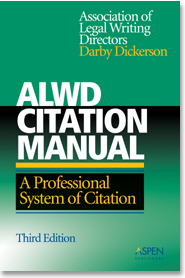The examples and perspective in this article deal primarily with the United States and do not represent a worldwide view of the subject.(October 2023) |
In re, Latin for 'in the matter [of]', is a term with several different, but related meanings.
The examples and perspective in this article deal primarily with the United States and do not represent a worldwide view of the subject.(October 2023) |
In re, Latin for 'in the matter [of]', is a term with several different, but related meanings.
In the legal system in the United States, In re is used to indicate that a judicial proceeding may not have formally designated adverse parties or is otherwise uncontested. In re is an alternative to the more typical adversarial form of case designation, which names each case as " Plaintiff v. (versus) Defendant ", as in Roe v. Wade or Miranda v. Arizona .
In re is commonly used in case citations of probate and bankruptcy proceedings, such as the General Motors Chapter 11 reorganization, which was formally designated In re General Motors Corp. in court papers. [1] The term is also sometimes used for consolidated cases, as with In re Marriage Cases . It was adopted by certain U.S. states, like California, when they adopted no-fault divorce to reflect the fact that the modern proceeding for dissolution of marriage was being taken out of the adversarial system. It is also used in juvenile courts, as, for instance, In re Gault .
The Bluebook , a legal citation and style guide used by American lawyers and law schools, describes In re as a "procedural phrase", and requires that citations use In re to abbreviate 'in the matter of', 'petition of', 'application of', and similar expressions. [2]

United States appellate procedure involves the rules and regulations for filing appeals in state courts and federal courts. The nature of an appeal can vary greatly depending on the type of case and the rules of the court in the jurisdiction where the case was prosecuted. There are many types of standard of review for appeals, such as de novo and abuse of discretion. However, most appeals begin when a party files a petition for review to a higher court for the purpose of overturning the lower court's decision.

In law, common law is the body of law created by judges and similar quasi-judicial tribunals by virtue of being stated in written opinions.

Name change is the legal act by a person of adopting a new name different from their current name.
In law, a citation or introductory signal is a set of phrases or words used to clarify the authority of a legal citation as it relates to a proposition. It is used in citations to present authorities and indicate how those authorities relate to propositions in statements. Legal writers use citation signals to tell readers how the citations support their propositions, organizing citations in a hierarchy of importance so the reader can quickly determine the relative weight of a citation. Citation signals help a reader to discern meaning or usefulness of a reference when the reference itself provides inadequate information.
An act of Congress is a statute enacted by the United States Congress. Acts may apply only to individual entities, or to the general public. For a bill to become an act, the text must pass through both houses with a majority, then be either signed into law by the president of the United States, be left unsigned for ten days while Congress remains in session, or, if vetoed by the president, receive a congressional override from 2⁄3 of both houses.
In law, certiorari is a court process to seek judicial review of a decision of a lower court or government agency. Certiorari comes from the name of an English prerogative writ, issued by a superior court to direct that the record of the lower court be sent to the superior court for review. The term is Latin for "to be made more certain", and comes from the opening line of such writs, which traditionally began with the Latin words "Certiorari volumus...".
An inquisitorial system is a legal system in which the court, or a part of the court, is actively involved in investigating the facts of the case. This is distinct from an adversarial system, in which the role of the court is primarily that of an impartial referee between the prosecution and the defense. Inquisitorial systems are used primarily in countries with civil legal systems, such as France and Italy, or legal systems based on Islamic law like Saudi Arabia, rather than in common law systems. It is the prevalent legal system in Continental Europe, Latin America, African countries not formerly under British rule, East Asia, Indochina, Thailand, and Indonesia. Most countries with an inquisitorial system also have some form of civil code as their main source of law.
A brief is a written legal document used in various legal adversarial systems that is presented to a court arguing why one party to a particular case should prevail. Appellate briefs establishes the legal argument for the party, explaining why the reviewing court should affirm or reverse the lower court's judgment based on legal precedent and citations to the controlling cases or statutory law.

The Bluebook: A Uniform System of Citation is a style guide that prescribes the most widely used legal citation system in the United States. It is taught and used at a majority of U.S. law schools and is also used in a majority of federal courts. Legal publishers also use several "house" citation styles in their works. The Bluebook is compiled by the Harvard Law Review Association, the Columbia Law Review, the University of Pennsylvania Law Review, and the Yale Law Journal. Currently, it is in its 21st edition. Its name derives from the cover's color.
Prejudice is a legal term with different meanings, which depend on whether it is used in criminal, civil, or common law. In legal context, "prejudice" differs from the more common use of the word and so the term has specific technical meanings.


ALWD Guide to Legal Citation, formerly ALWD Citation Manual, is a style guide providing a legal citation system for the United States, compiled by the Association of Legal Writing Directors. Its first edition was published in 2000, under editor Darby Dickerson. Its sixth edition, under editor Coleen M. Barger, was released in May 2017 by Wolters Kluwer.
No-fault divorce is the dissolution of a marriage that does not require a showing of wrongdoing by either party. Laws providing for no-fault divorce allow a family court to grant a divorce in response to a petition by either party of the marriage without requiring the petitioner to provide evidence that the defendant has committed a breach of the marital contract.
A legal case is in a general sense a dispute between opposing parties which may be resolved by a court, or by some equivalent legal process. A legal case is typically based on either civil or criminal law. In most legal cases, there are one or more accusers and one or more defendants. In some instances, a legal case may occur between parties that are not in opposition, but require a legal ruling to formally establish some legal fact.
Ex rel. is an abbreviation of the Latin phrase "ex relatione". The term is a legal phrase; the legal citation guide, the Bluebook, describes ex rel. as a "procedural phrase" and requires using it to abbreviate "on the relation of", "for the use of", "on behalf of", and similar expressions.
Legal citation is the practice of crediting and referring to authoritative documents and sources. The most common sources of authority cited are court decisions (cases), statutes, regulations, government documents, treaties, and scholarly writing.

A juvenile court, also known as young offender's court or children's court, is a tribunal having special authority to pass judgements for crimes that are committed by children who have not attained the age of majority. In most modern legal systems, children who commit a crime are treated differently from legal adults that have committed the same offense.

Legal writing involves the analysis of fact patterns and presentation of arguments in documents such as legal memoranda and briefs. One form of legal writing involves drafting a balanced analysis of a legal problem or issue. Another form of legal writing is persuasive, and advocates in favor of a legal position. Another form legal writing involves drafting legal instruments, such as contracts and wills.

In the United States military, the Army Court of Criminal Appeals (ACCA) is an appellate court that reviews certain court martial convictions of Army personnel.
Alternative dispute resolution (ADR), or external dispute resolution (EDR), typically denotes a wide range of dispute resolution processes and techniques that parties can use to settle disputes with the help of a third party. They are used for disagreeing parties who cannot come to an agreement short of litigation. However, ADR is also increasingly being adopted as a tool to help settle disputes within the court system.